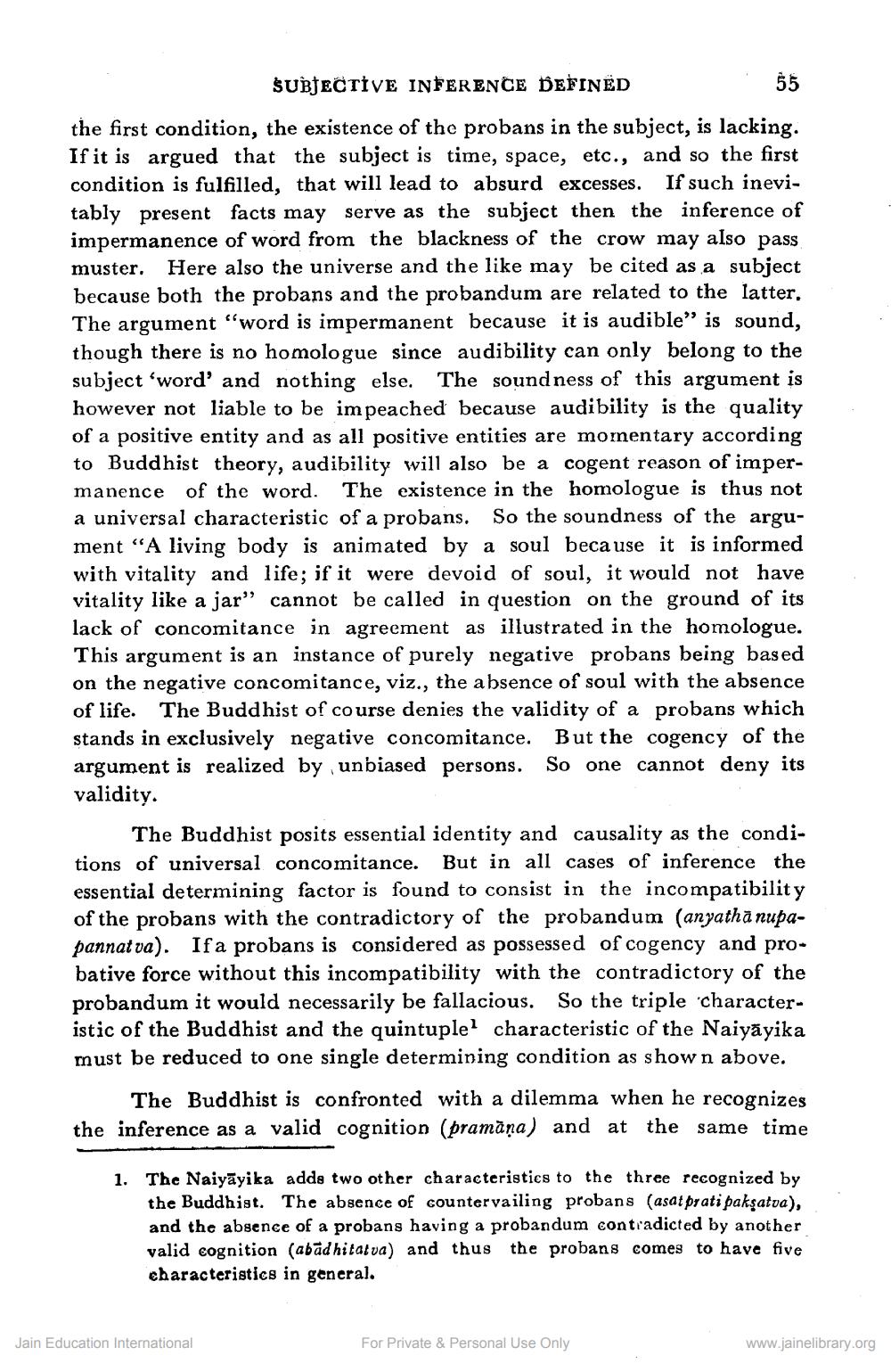________________
SUBJECTIVE INFERENCE DEFINED
. 55 the first condition, the existence of the probans in the subject, is lacking. If it is argued that the subject is time, space, etc., and so the first condition is fulfilled, that will lead to absurd excesses. If such inevitably present facts may serve as the subject then the inference of impermanence of word from the blackness of the crow may also pass muster. Here also the universe and the like may be cited as a subject because both the probans and the probandum are related to the latter. The argument "word is impermanent because it is audible” is sound, though there is no homologue since audibility can only belong to the subject 'word' and nothing else. The soundness of this argument is however not liable to be impeached because audibility is the quality of a positive entity and as all positive entities are momentary according to Buddhist theory, audibility will also be a cogent reason of impermanence of the word. The existence in the homologue is thus not a universal characteristic of a probans. So the soundness of the argument “A living body is animated by a soul because it is informed with vitality and life; if it were devoid of soul, it would not have vitality like a jar” cannot be called in question on the ground of its lack of concomitance in agreement as illustrated in the homologue. This argument is an instance of purely negative probans being based on the negative concomitance, viz., the absence of soul with the absence of life. The Buddhist of course denies the validity of a probans which stands in exclusively negative concomitance. But the cogency of the argument is realized by unbiased persons. So one cannot deny its validity.
The Buddhist posits essential identity and causality as the conditions of universal concomitance. But in all cases of inference the essential determining factor is found to consist in the incompatibility of the probans with the contradictory of the probandum (anyathā nupapannat va). If a probans is considered as possessed of cogency and probative force without this incompatibility with the contradictory of the probandum it would necessarily be fallacious. So the triple characteristic of the Buddhist and the quintuple characteristic of the Naiyãyika must be reduced to one single determining condition as shown above.
The Buddhist is confronted with a dilemma when he recognizes the inference as a valid cognition (pramāna) and at the same time
1. The Naiyāyika adds two other characteristics to the three recognized by
the Buddhist. The absence of countervailing probans (asat prati pakşatva), and the absence of a probans having a probandum contradicted by another valid cognition (abād hitatva) and thus the probans comes to have five characteristics in general.
Jain Education International
For Private & Personal Use Only
www.jainelibrary.org




